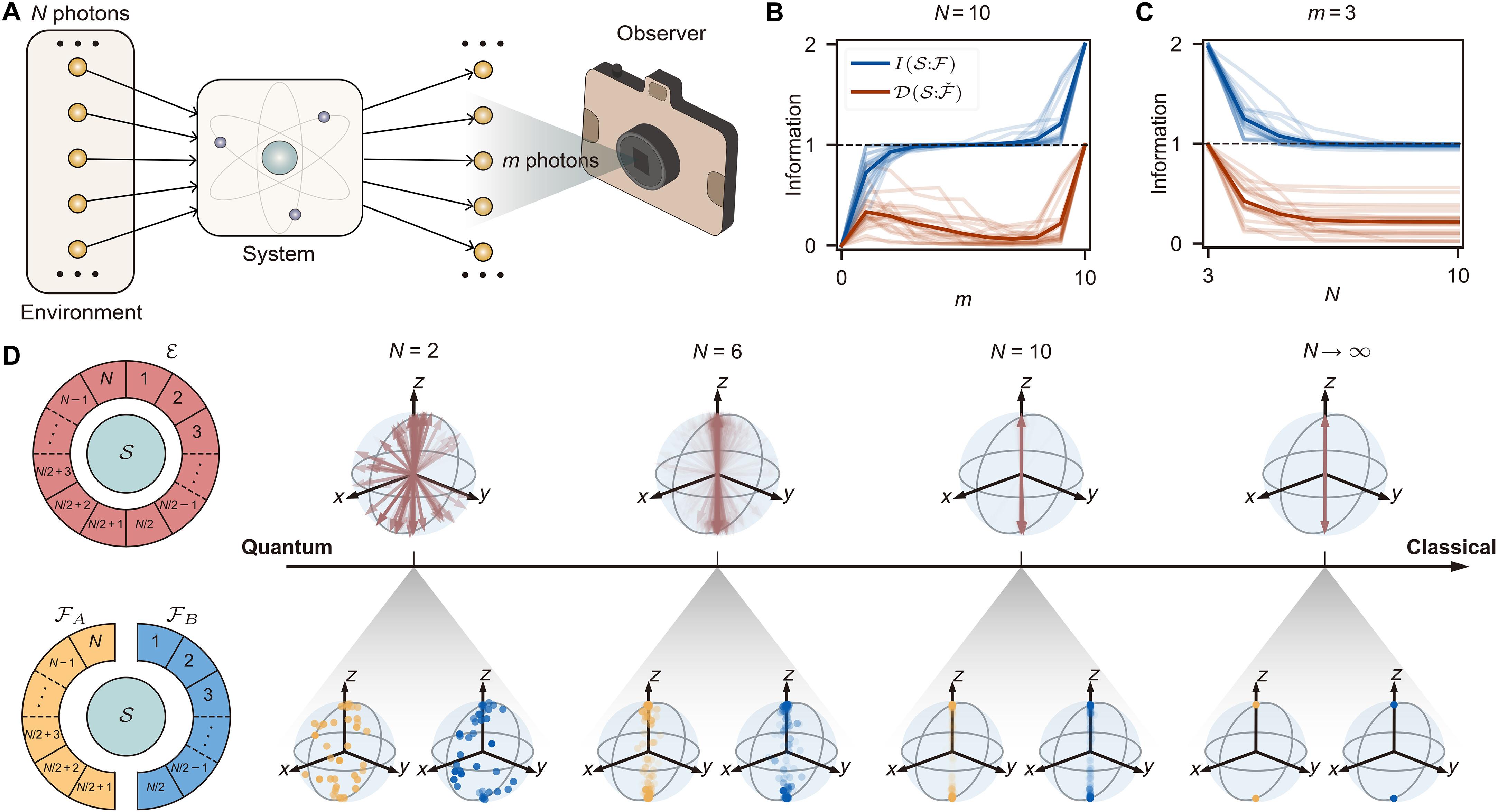量子达尔文主义的观察和超导电路的经典起源
IF 12.5
1区 综合性期刊
Q1 MULTIDISCIPLINARY SCIENCES
引用次数: 0
摘要
从量子行为到经典行为的过渡是现代物理学的一个中心问题。我们如何从固有的量子世界中合理化日常的经典观测?量子达尔文主义提供了一个令人信服的框架来解释这一点,它提出环境对量子系统的信息进行冗余编码,从而导致客观现实。在这里,通过利用尖端的超导量子电路,我们观察到支持经典性和量子互信息饱和的高度结构化分支量子态,建立了对量子达尔文主义和量子态潜在几何结构的强大验证。此外,我们提出了一类特殊的可观测值,可以用作计算和实验上廉价的量词来探测量子到经典的转变。我们的研究深入研究了量子效应是如何对观察者来说是不可接近的,只允许检测到经典性质。它通过实验证明了日常经典观测从潜在量子原理中产生的物理框架,并为解决测量问题铺平了道路。本文章由计算机程序翻译,如有差异,请以英文原文为准。

Observation of quantum Darwinism and the origin of classicality with superconducting circuits
The transition from quantum to classical behavior is a central question in modern physics. How can we rationalize everyday classical observations from an inherently quantum world? Quantum Darwinism offers a compelling framework to explain this by proposing that the environment redundantly encodes information about a quantum system, leading to the objective reality. Here, by leveraging cutting-edge superconducting quantum circuits, we observe the highly structured branching quantum states that support classicality and the saturation of quantum mutual information, establishing a robust verification of quantum Darwinism and the underlying geometric structure of quantum states. Additionally, we propose a particular class of observables that can be used as a computationally and experimentally inexpensive quantifier to probe quantum-to-classical transitions. Our investigation delves into how the quantum effects are inaccessible to observers, allowing only classical properties to be detected. It experimentally demonstrates the physical framework through which everyday classical observations emerge from underlying quantum principles and paves the way to settling the measurement problem.
求助全文
通过发布文献求助,成功后即可免费获取论文全文。
去求助
来源期刊

Science Advances
综合性期刊-综合性期刊
CiteScore
21.40
自引率
1.50%
发文量
1937
审稿时长
29 weeks
期刊介绍:
Science Advances, an open-access journal by AAAS, publishes impactful research in diverse scientific areas. It aims for fair, fast, and expert peer review, providing freely accessible research to readers. Led by distinguished scientists, the journal supports AAAS's mission by extending Science magazine's capacity to identify and promote significant advances. Evolving digital publishing technologies play a crucial role in advancing AAAS's global mission for science communication and benefitting humankind.
 求助内容:
求助内容: 应助结果提醒方式:
应助结果提醒方式:


